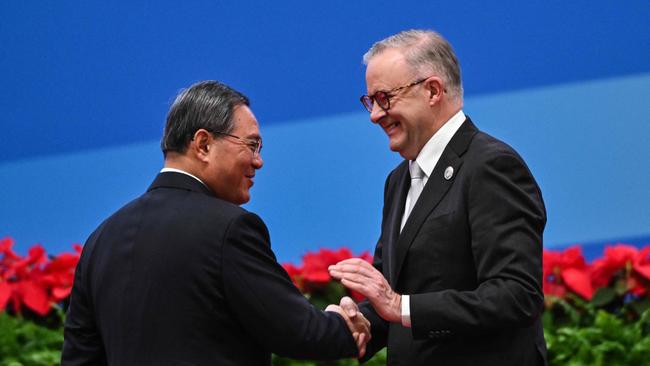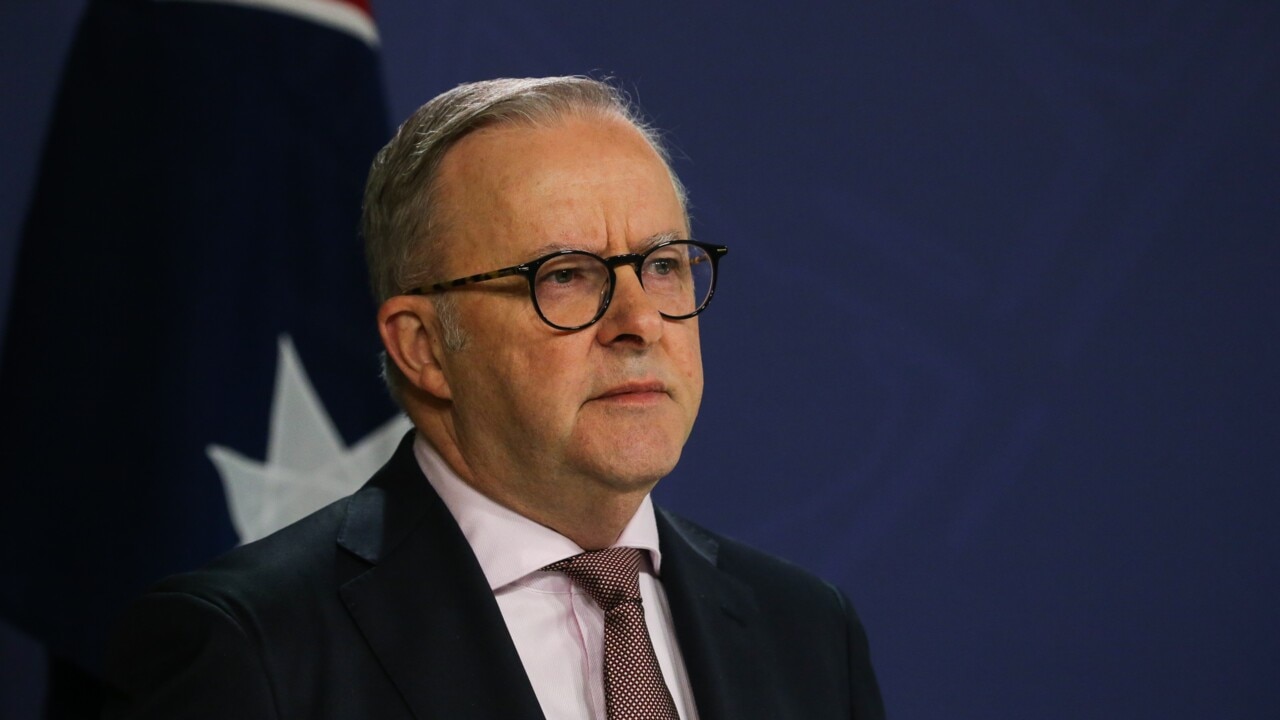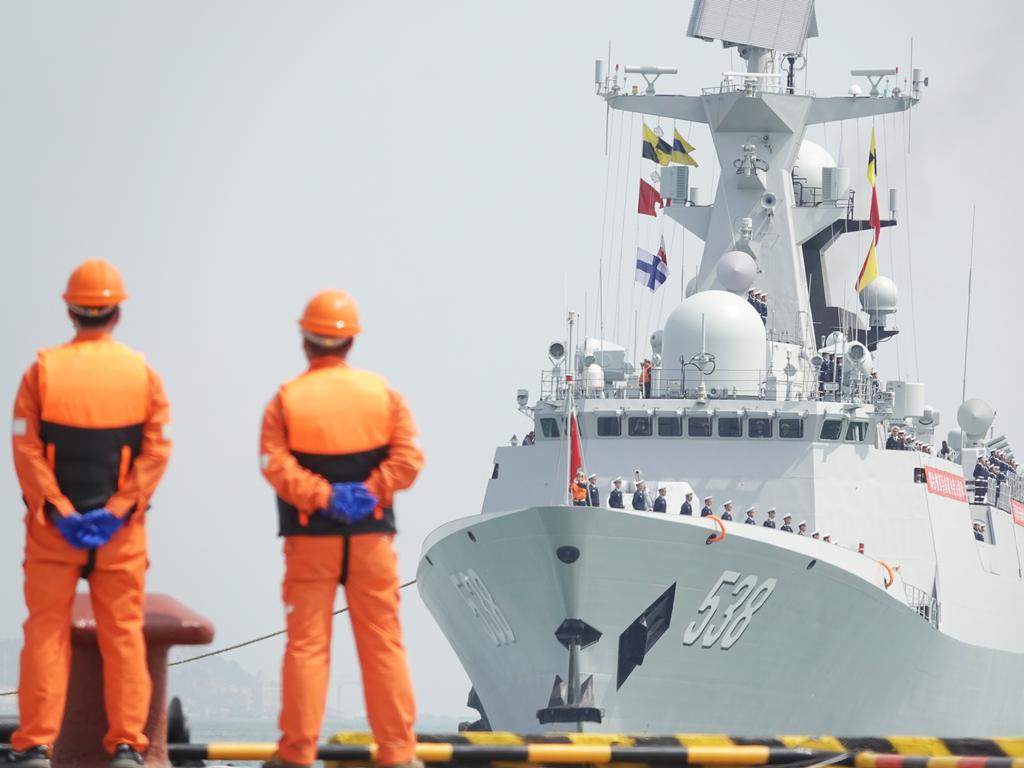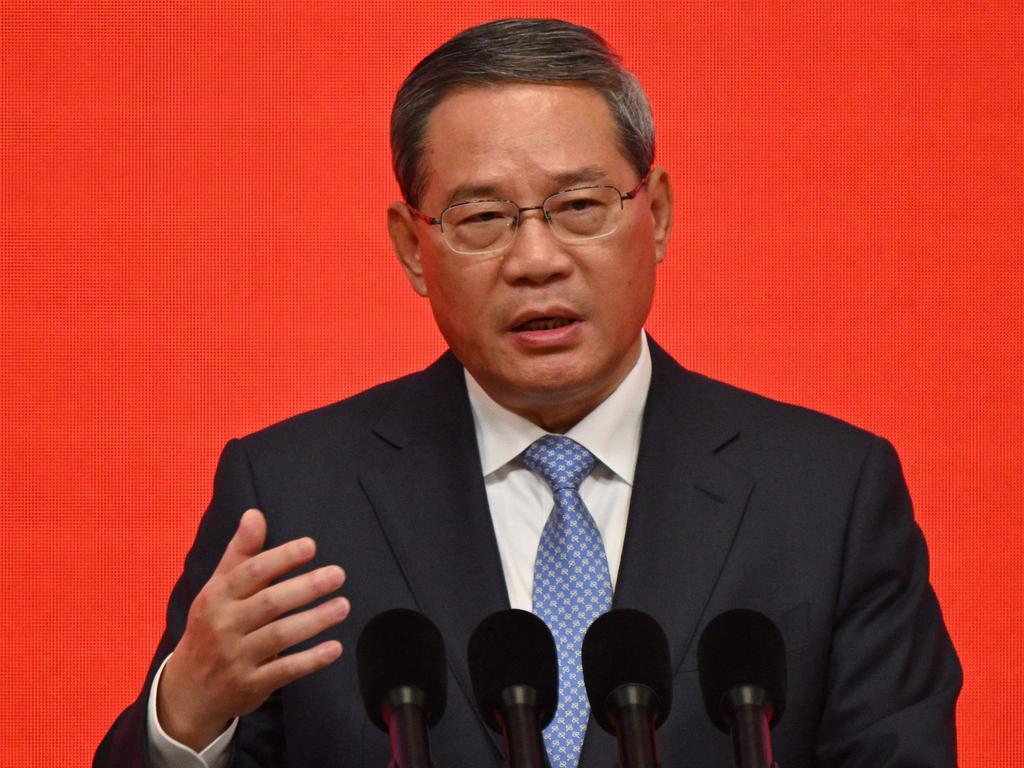Protest clashes to mar China’s panda diplomacy
Police are preparing for potential clashes between ‘patriotic’ Chinese and anti-China protesters when Premier Li Qiang visits Canberra next week.

Police are preparing for potential clashes between “patriotic” Chinese and anti-China protesters when Premier Li Qiang visits Canberra next week, after Beijing urged its Australian supporters to show up in force to welcome the country’s No. 2 leader.
The call-out came as Anthony Albanese framed Mr Li’s trip as a boost for Australia’s economic prosperity, noting China’s hunger for the nation’s resources including critical minerals.
Xi Jinping’s right-hand man will kick off his June 15-18 Australian trip in Adelaide, where he is expected to announce that two pandas on loan at the city’s zoo will have their stay extended.
Mr Li will meet winemakers in the South Australian capital on Sunday and attend a state lunch hosted by Foreign Minister Penny Wong and Trade Minister Don Farrell, before heading to Canberra for talks with Mr Albanese on Monday. The Prime Minister will accompany the Chinese leader to Perth the following day for talks with business leaders and tours of a Chinese-backed lithium venture and a Fortescue Metals Group hydrogen plant.
Chinese community associations linked to Beijing’s United Front Work Department sent out messages to their members in recent weeks offering free trips to Canberra to show their support for Mr Li. “We want to show our patriotism,” one of the messages said. “Food, accommodation and transport will be provided.”
Human rights activists will also be in Canberra to protest against China’s treatment of Uighurs, Tibetans, Hong Kong residents, and detained Australians including writer Yang Hengjun. They sought an all-day permit to gather on the lawn in front of Parliament House, but were asked to delay their protest until 12pm – well after the Premier’s arrival.
They are expected to ignore the request, creating a potential headache for the Australian Federal Police. An AFP source said: “We are prepared for anything and everything.”
The Prime Minister announced details of Mr Li’s trip on Tuesday afternoon, just a day after rebuffing questions on the matter and describing it as a “potential visit”. The trip will be the first by a Chinese premier to Australia in seven years, and follows Mr Albanese’s visit to Beijing last November for talks with Mr Li and Mr Xi.
Writing in The Australian, the Prime Minister says his government’s “patient, calibrated” diplomacy has rescued the nations’ trade relationship, allowing the rollback of $20bn worth of Chinese trade bans on a raft of Australian exports.
“All of this matters,” Mr Albanese writes. “Trade supports one in four Australian jobs, it underpins one in every three dollars of our economic output and China is far and away our largest trading partner. Australian resources have played a pivotal role in China’s extraordinary economic transformation and the growth of our entire region.
“Our government’s plan for a future made in Australia will build on this success by catering to growing global demand for the critical minerals and rare earths essential to reach net zero.”
Chinese Foreign Ministry spokesman Lin Jian said Mr Li and Mr Albanese would discuss the state of the bilateral relationship and international and regional issues of “common concern”.
“China is willing to take this visit as an opportunity to work with Australia to strengthen high-level exchanges, enhance mutual understanding and trust, deepen pragmatic co-operation, and jointly build a more mature, stable and fruitful China-Australia comprehensive strategic partnership,” Mr Lin said.
The trip comes amid hardening public sentiment towards China, with a survey revealing a fall in the proportion of Australians who believe the nation’s economic success is dependent on China. The UTS-Australia-China Relations Institute poll of more than 2000 people found 54 per cent believed Australia’s economic prosperity was closely linked to China, down from 63 per cent in 2021. The survey also revealed deep resentment over the role of Chinese buyers in Australia’s property market. Eighty per cent of respondents blamed Chinese investors for driving up property prices, and nearly three quarters said they had played a role in skyrocketing rents.

Half of respondents said military conflict with China was “a real possibility” in the next three years, while only 26 per cent backed the government’s decision to allow a Chinese-owned company to retain its lease over the Port of Darwin.
Mr Albanese said he hoped to see a Chinese ban on Australian lobsters lifted during Mr Li’s visit, saying China had an interest in receiving “our magnificent goods”.
He said he would raise Australia’s concerns over a Chinese jet’s “dangerous” confrontation with an Australian helicopter over the Yellow Sea last month, when it dropped flares in front of the navy Seahawk, forcing it to take evasive action. “He, of course, will be very aware of Australia’s position, which is that Australia was engaged in legitimate international activity, and that that should never have occurred,” Mr Albanese said.
The Prime Minister is also expected to raise Australia’s concerns over China’s threats against Taiwan, its aggressive conduct in the South China Sea, its human rights record and its treatment of detained Australians.
Opposition foreign affairs spokesman Simon Birmingham said Australians expected the Prime Minister to be frank with his Chinese counterpart over Beijing’s unacceptable behaviour.
“This is a welcome visit but one where discussions must fully address the difficulties and dangers presented by China’s risky regional military operations, including endangering Australian Defence Force personnel operating in international waters,” Senator Birmingham said.
Giant pandas Fu Ni and Wang Wang have been on loan from China since 2009 in an agreement due to expire in November. Adelaide Zoo has been waiting to hear whether China will renew its contract to host the pair.
The Business Council of Australia, which will host a business roundtable for Mr Li and Mr Albanese in Perth, said the improvement in the Australia-China relationship was vital for exporters, particularly in the mining, education, agriculture and services sectors.
Additional reporting: Will Glasgow








To join the conversation, please log in. Don't have an account? Register
Join the conversation, you are commenting as Logout